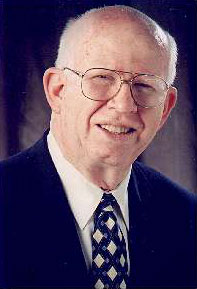 I rejoice to see the regular announcements from Baptist Women in Ministry of women being ordained to ministry. Gradually re-shaping the church, these women contribute to a different vision of God.
I rejoice to see the regular announcements from Baptist Women in Ministry of women being ordained to ministry. Gradually re-shaping the church, these women contribute to a different vision of God.
We know that when men are the normative interpreters of Scripture, heroes of Christian tradition and models for ministry practice, it is understandable that we begin to think that somehow men are more like God than women are. We must reconstruct our theological vision in this regard.
Created equally as bearers of the image of God, women have been relegated to a secondary status for much of Christian history. Blamed for the fall, women have been excluded from spiritual leadership for their role as the “devil’s gateway,” in the words of Tertullian. Aquinas argued that a priest must bear a “natural resemblance” to Christ – meaning be a male – and surprisingly, Protestants have followed similar logic, regarding women as somehow unfit for ministry. (Baptists, thankfully, have stopped short of calling women “defective expressions of humanity,” as Aquinas did.)
“Women have seen the connection between the language we use for God and whether they have equal authority in ministry.”
Women have seen the connection between the language we use for God and whether they have equal authority in ministry.
Most of us have now made the shift toward inclusive language for humanity, and we are learning how pronouns matter in personal identity. We have realized that exclusive language erases half of humanity. Using only man or mankind ignores the presence of women in biblical narratives – and in life. It makes men normative humanity and sustains androcentric privilege.
We know the power of naming, and Scripture reminds us of all the ways identity is carried in a name. Transposing the Bible into contemporary nomenclature is a first step toward revising our vision of God; mentioning the names of women present and active in God’s redemptive mission matters. Indeed, that sometimes women “steal the show,” such as the midwives Shiphrah and Puah, suggests the wonder of God-breathed Scripture.
Contexts essentially shaped Scripture – the Ancient Near Eastern world and the Greco-Roman world of the early centuries of the Common Era – and they were patriarchal to the core. The social structure was hierarchical, and men held most of the rights for inheritance, divorce and religious standing. The language of the Bible reflects this structure, and it is not surprising that masculine imagery predominates.
The problem is that many persons today read these ancient texts as prescriptive for the roles of women and men today, and they construct a complementarian vision of male and female relationships – to the detriment of both. Some have even gone so far as to import eternal subordination into the Trinity as a ploy to argue for subordination in Christian marriage.
What progress are we making in our language for God? Using inclusive language for God has powerful impact on how we view God, how we order human relations and how we perform our roles as disciples of Jesus. This is difficult linguistically and theologically, yet it is a necessary figural reorientation.
If you look at the works of the great visual artists who have shaped the popular imagination about the being of God, it is not surprising that the old man, young man and the bird have lingering influence. Look at the Sistine Chapel, where Michelangelo labored to make the ceiling the narrative of God, or the great works of Da Vinci, and you will discover how such images for God shape language. The robust figure of the bearded, gray-headed God reaching for Adam, who is similarly reaching toward God, is a hyper-masculinized picture of God and humanity.
“Changing language helps, but so does the embodied presence of women as pastoral leaders.”
Our words, no less than these painted images, render a similar vision of God unless we learn new ways of speaking of the divine. Many translations, such as the NRSV, have moved the practice of inclusive language forward by including women and sisters in the texts but have left “He” as the primary pronoun for speaking of God. The challenge is that grammatical gender elides into biological gender in the minds of many. Far too many believe that God is literally male and that “Father language” rightly denotes God as ultimate progenitor.
Many have dismissed inclusive language as “politically correct.” I believe it runs much deeper, however. It is an attempt to speak justly about humans, and it strives to offer a vision of God beyond gender.
One of the reasons I have given attention to the Spirit of God in recent years is that it allows one to bypass gendered language for God. Language of the Spirit allows us to imagine that God is beyond our anthropomorphic projections. The God who dwells eternally in the richness of trinitarian community invites us to new ways of imagining God with us, moving us beyond our exclusively masculine vision.
Changing language helps, but so does the embodied presence of women as pastoral leaders. Their very presence renders a different vision of God. I celebrate the many who are moving into pastoral leadership among progressive Baptists.
*Dr. Molly Marshall spoke twice at the Hamrick Lectures at First Baptist Church of Charleston, SC. She is a congregation favorite.








